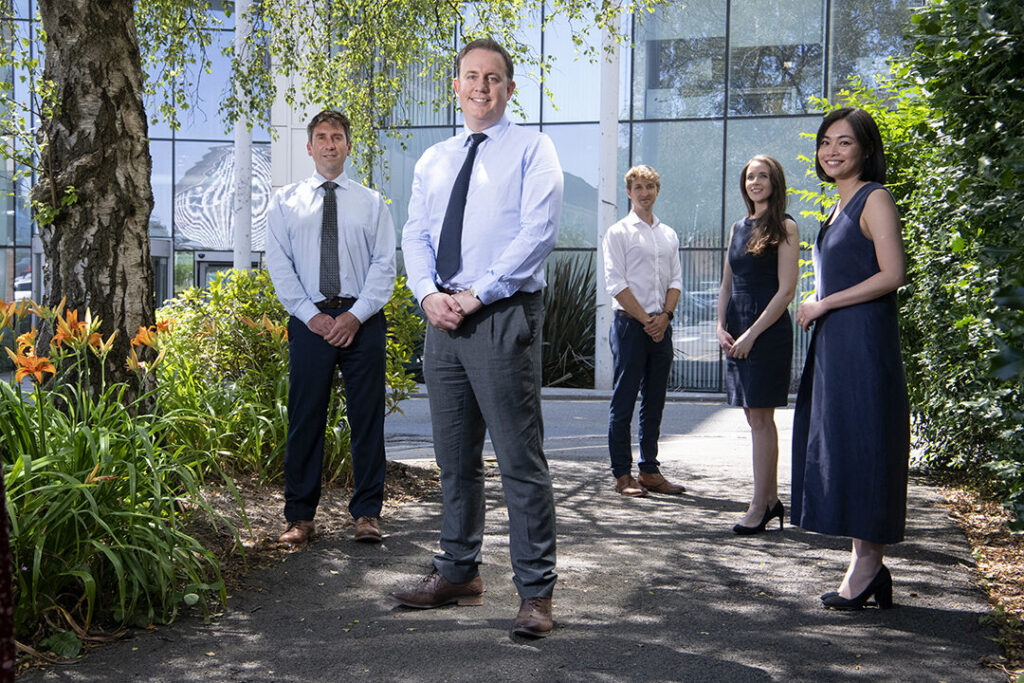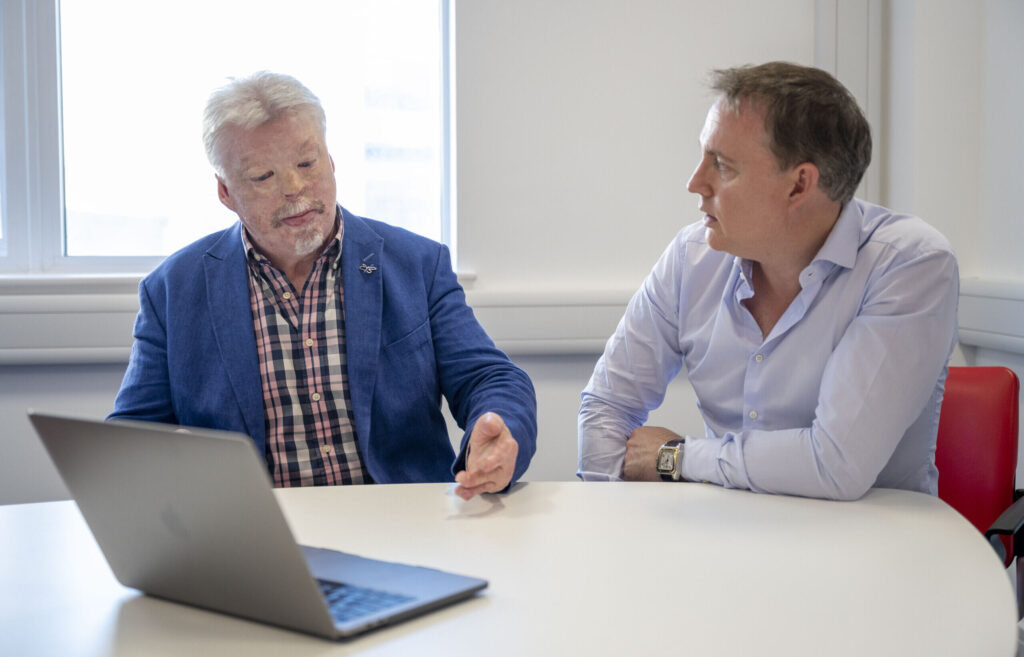Researchers at Swansea University Conduct World’s largest study on facial scarring and mental health

Scar Free Foundation Research at Swansea University led by Professor Iain Whitaker’ team to advance the development of 3D bioprinted facial cartilage (ears and noses using human cells and plant based materials. pictured.. Professor Iain Whitaker (centred) with members of his team (from left) Octavian Parkes, Tom Jovic Emman Combellack and Cynthia de Courcey, outside Swansea University’s Institute of Life Science building Copyright © 2021 by Adrian White Photography, all rights reserved. For permission to publish - contact me via www.adrianwhitephotography.co.uk Please respect copyright laws.
Researchers at Swansea University have completed the world’s largest study of the link between facial scarring and anxiety and depression.
Professor Iain Whitaker and his colleagues (pictured above) found that people with facial scars are more likely to suffer from anxiety and depression compared to the wider population.
The research showed that there are some key factors that influence how often people with facial scars experience these common mental health issues:
- Anxiety and depression are most prevalent among people whose scars came from self-harm, assault, or traumatic injuries like burns.
- People whose scars came from congenital conditions are the least likely to be treated for anxiety and depression.
- Women, people with a history of poor mental health, and people experiencing deprivation are also at a higher risk.
The study, Assessing the burden oF Facial scarring and associated mEntal health Conditions to identify patients at greatesT risk – known as AFFECT – was funded by The Scar Free Foundation and Health and Care Research Wales. The headline research of the AFFECT study has just been published by respected psychiatry journal, BJPsychOpen.
The researchers used Swansea University’s SAIL Databank as the basis for their analysis. Using health data from Wales, they found 179,079 people with facial scars. These records were matched by socio-economic status, age of facial scarring, and sex to the same number of people without scars.
The GP records of these matched pairs were compared to figure out how many people with facial scars and without facial scars were treated for anxiety and depression.
The findings could change how patients with facial scars are supported.
Professor Whitaker, from the University’s Medical School and Lead Investigator on the AFFECT Study said: “I’ve been a plastic surgeon for 20 years, and I see a huge number of patients that need to have cancers on their face removed, or who have facial injuries. Every surgery leaves a scar but currently, there is an absence of psychological support for patients.
“It’s important to me as a doctor that I know the repercussions of treatment on my patients beyond the immediate physical effects. I want to give my patients better information and a better patient experience. I hope this research leads to a more robust system of mental health support for patients with facial scars.”

Lead Scar Free Ambassador Simon Weston said: “Since the age of 20, I have had to live with my scars. In the early days, the abrupt change in the course of my life caused severe psychological challenges. Not only did I suffer with PTSD, I sank into depression, worrying if I could ever have a normal life again and if I would be able to have a family. But my family and friends were my support network, there was a great deal of strength and love which pushed me forward. It didn’t happen overnight – there was a huge transition to go through and I had to learn to like myself, the person that I was, and ultimately I did.
“The work that The Scar Free Foundation and the team at Swansea University is fantastic. This has been a long time coming. I am passionate about the issue of scarring, and want people with these kinds of visual differences to be accepted in society. People with scarring are real people who just want to be treated as equals.
“Nowadays I’m not affected by the offensive things some people say. I’m very comfortable in my own skin and want others to be too. Hopefully the steps the team is taking will really help with this.”
Dr Jaco Nel, Scar Free Ambassador and sepsis survivor added: “From my own experience as both a psychiatrist and someone living with scars, I know there’s very little psychological support built in to help people with scarring, especially in the early days.
“This study shows how important it is for patients to be offered good psychological support throughout their journey. The illness or event that leads to a facial scar is often fleeting, but our scars will be with us forever. I hope studies like this spur change so that in the future, people living with facial scars can live their lives without shame or anxiety.”
Michael Bowdery, Head of Programmes at Health and Care Research Wales, said: “One in 100 people in the UK have a significant facial difference. Understanding the association between facial scarring and mental health will help us devise strategies to address people’s needs.
“The full programme of research taking place at The Scar Free Foundation/Health and Care Research Wales Programme of Facial Reconstruction and Regeneration Research at Swansea University, also includes the BioFace project, which advances the development of 3D bio printed facial cartilage (ears and noses) for people born without body parts or live with facial scarring. Another part of the programme is RESECT project which explores patient experience and service redesign for people with skin cancer.
“We are proud of our collaboration with the Scar Free Foundation and excited for the future of scar free research.”




